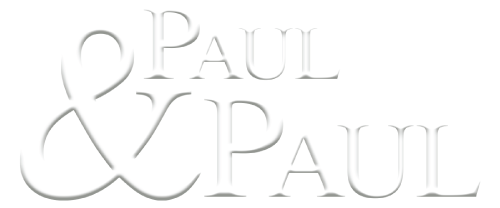Almost all musicians have been accused of plagiarism sometime in their career. Everyone from the Beatles to Coldplay has had to face legal battles or out-of-court settlements for copyright infringement accusations. We’ll outline some copyright laws for music to help you learn more about music plagiarism.
Almost all musicians have been accused of plagiarism sometime in their career. Everyone from the Beatles to Coldplay has had to face legal battles or out-of-court settlements for copyright infringement accusations.
Very recently, musician Lana Del Rey has been sued by Radiohead for plagiarizing “Creep” in her song “Get Free.” Ironically, Radiohead was accused by the Hollies for copying “Creep” from their hit composition “The Air That I Breathe,” in 1992. Radiohead had to give co-writing credit to the Hollies and now they are planning to fight it out with Lana Del Rey for protecting their pecuniary and creative rights on the song.
So, in a creative field like music writing where composers often get “inspired” by contemporaries or veterans, what makes a song a rip-off and a case for music plagiarism?
What constitutes music plagiarism?
Under the Copyright Law of 1976, whenever a person writes a song, a copyright automatically exists on it. Though registration of the song with the copyright office is advisable, it’s not a must. Copyrighted elements of a song include chord progression, lyrics, melody, and rhythm- anything with a spark of creativity can be said to be “owned” by the creator and protected by copyrights.
One exception to this rule are songs published in the public domain, i.e. before 1923. These are not protected by copyright laws.
How to prove copyright infringement?
If a composer feels a song has been infringed upon, she (the plaintiff) will have to prove two things before a court of law- “access” and “substantial similarity.” Music plagiarism law is a “strict liability tort” that means that if the plaintiff is able to prove that the accused (defendant) had access to her composition and the two songs have substantial similarity, it amounts to copyright infringement.
The defendant may not have the intention to infringe but the presence of these two elements is sufficient to label her culpable.
To prove access, the plaintiff has to prove beyond reasonable doubt that the defendant had access to the allegedly infringed song before creating her own song. For this, the judge will examine the existence of a relationship between the two parties and the popularity of the original song.
To prove substantial similarity between the two songs, “the ordinary observer test” is carried out where a layperson can identify any common elements between the compositions. Since average jurors cannot read music, experts (musicologists) are called upon by both parties to give their opinion and plagiarism cases often end up being battle of the experts.
What are the defendant’s options?
Defense strategies include:
- Convincing the court that the plaintiff is not the real owner of the song. To have ownership rights to a composition, one has to have either written it herself or been given the ownership rights by the writer.
- The defendant’s lawyers can argue that the infringed elements are commonplace and used in most compositions of the genre, hence there is no ground for plagiarism.
- According to the U.S. Copyright Law, infringement cases must be filed within three years of suspected infringement. If this statute of limitation expires, courts may not entertain a lawsuit.
- If the infringed song is a parody of the original song, it may be exempt from infringement lawsuits since comment and criticism of songs falls in the “fair use” category.
- Another defense tactic is to argue that the infringed element is too unnoticeable and fleeting. Such elements would include certain words or phrases used in the song.
- A last resort can be to claim that the song is the defendant’s independent creation and not a copy of the original song.
What are the consequences of plagiarism?
The infringers might have to pay serious damages plus attorney’s fees, and also lose rights to the song and all future pecuniary gains by its sale or subscription. As juries are very subjective and the line between infringement and inspiration is murky, many composers who suspect plagiarism of their creations, prefer to settle out of courts.
An experienced copyright attorney can prepare a strong lawsuit or settlement offer that enables you to get the best compensation for your claim.
At Paul & Paul we have been helping artists save protect their creations by bringing infringers to justice for over two decades. If you need help with your copyright infringement case or you think you have been falsely accused, contact us or give us a call at (215) 568-4900 for a free consultation today.
